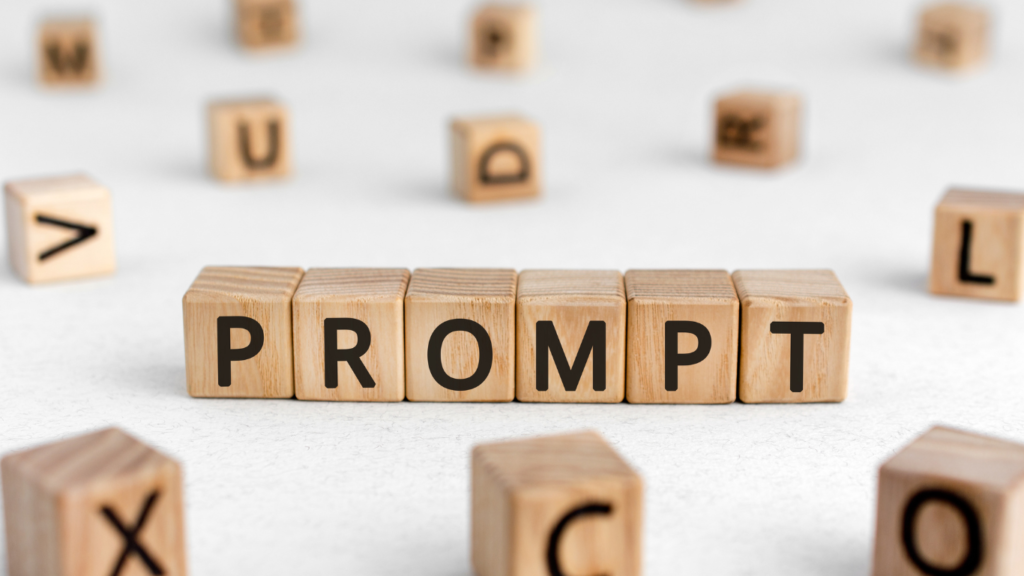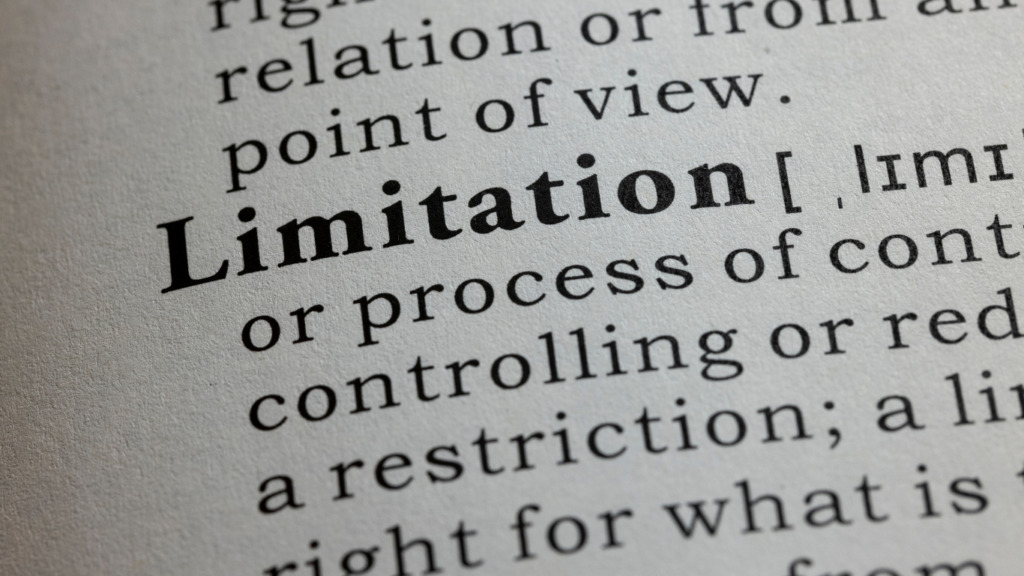Picture having a virtual assistant who not only understands legal jargon but also simplifies complex concepts. This isn’t just about embracing technology; it’s about empowering lawyers with a tool that speaks their language and streamlines their daily grind. Per a late March 2023 survey among lawyers at large and midsize law firms in the United States, United Kingdom, and Canada, around 51 percent of respondents believed that ChatGPT and generative AI should be applied to legal work.
Uncover the game-changing role of ChatGPT in the legal industry – where simplicity meets sophistication, and efficiency takes center stage. In this blog, you will learn how you can make ChatGPT your bestie by understanding the limitations as well.
How to Write Best Prompts for ChatGPT
Effective utilization of ChatGPT in the legal profession hinges on the ability to formulate precise and contextually relevant prompts. Crafting the ChatGPT prompts for lawyers that yield accurate and insightful responses involves a strategic approach. Here are four key strategies for writing the best prompts to maximize the potential of ChatGPT in the legal domain:
Crafting Clear and Specific Questions: One of the fundamental principles when interacting with ChatGPT is to formulate clear and specific questions. Ambiguity in prompts can lead to responses that lack the necessary precision for legal applications. For instance, instead of asking a vague question like “Tell me about contracts,” consider specifying your inquiry: “What are the key elements of a non-disclosure agreement?” This approach guides ChatGPT to provide more focused and relevant information tailored to your needs.
Incorporating Legal Context and Nuances: The legal field is renowned for its intricate language, specialized terminology, and nuanced concepts. To extract meaningful insights from ChatGPT, it is crucial to embed legal context within your prompts. By using specific legal terms and referencing relevant statutes or case law, you guide ChatGPT to generate responses. Which aligns with the specialized nature of legal practice. This ensures that the information provided is not only accurate but also contextually appropriate for legal professionals.
Experimenting with Different Prompt Structures: Variety in prompt structures can yield diverse and valuable results. Experimenting with different ways of phrasing questions or framing prompts allows you to explore the full potential of ChatGPT. For example, you might try posing a question as a scenario: “If a client breaches a contract, what legal remedies are available?” Alternatively, you can request step-by-step guidance: “Provide a structured approach to analyzing a complex legal case.” By exploring different prompt structures, you enhance your ability to obtain nuanced and comprehensive responses.
Iterative Refinement for Improved Results: The process of refining your prompts is iterative and essential for achieving optimal outcomes with ChatGPT. After receiving initial responses, carefully review and assess the results. Identify areas where clarity or specificity can be improved and iteratively refine your prompts accordingly. This iterative approach enhances the model’s understanding of your requirements over time, leading to increasingly accurate and tailored responses.
9 Best ChatGPT Prompts for Lawyers

- Effortless Legal Research: Conducting thorough legal research is a cornerstone of effective lawyering. With ChatGPT, lawyers can effortlessly obtain overviews of recent legal precedents related to their specific areas of interest. Prompt the model with, “Please provide an overview of recent legal precedents related to [specific area of law].”
- Drafting Legal Documents: Drafting legal documents can be time-consuming, but ChatGPT can expedite the process. Ask for assistance in crafting a specific legal document for a given situation, and let the model generate a draft for you. “Assist me in drafting a [type of legal document] for a [specific legal situation].”
- Case Analysis: Evaluate your cases more effectively by seeking insights from ChatGPT. Provide the model with a specific case name and ask it to analyze the strengths and weaknesses from a legal perspective.
“Analyze the strengths and weaknesses of the case [Case Name] from a [legal perspective].” - Legal Advice Request: When faced with uncertainties in a legal matter, get quick guidance on potential implications by asking ChatGPT for advice.
“Offer guidance on the potential legal implications of [specific situation].” - Statute Interpretation: Interpretation of statutes is a crucial aspect of legal practice. Ask ChatGPT to help you understand the relevant statutes in your jurisdiction pertaining to a specific legal issue.
“Interpret the relevant statutes in [jurisdiction] pertaining to [specific legal issue].” - Contract Review: Save time on contract reviews by leveraging ChatGPT. Provide the model with a specific contract name and ask it to highlight potential legal risks or ambiguities in the document.
“Review the contract [Contract Name] and highlight any potential legal risks or ambiguities.” - Ethical Dilemma Consultation: Ethical considerations are paramount in the legal profession. Seek insights on ethical dilemmas by prompting ChatGPT with a specific legal scenario and asking for guidance.
Provide insights on the ethical considerations involved in [specific legal scenario].” - Legal Technology Recommendations: Stay tech-savvy by asking ChatGPT for recommendations on cutting-edge legal technology tools tailored to your specific law practice area.
“Suggest cutting-edge legal technology tools for [specific law practice area].” - Legal Writing Tips: Improve your legal writing skills with tips and guidelines from ChatGPT. Request assistance in crafting a persuasive legal brief on a specific legal matter, and benefit from the model’s language expertise.
“Offer tips and guidelines for crafting a persuasive legal brief on [specific legal matter].”
Best Practices for Using ChatGPT in Legal Practice
To maximize the benefits of ChatGPT while mitigating potential risks, legal professionals should adopt best practices in its usage:
- Regularly Updating Prompts for Accuracy
The legal landscape grows, and laws are subject to change. To ensure the accuracy of information obtained through ChatGPT, legal practitioners should regularly update their prompts to reflect the latest legal developments. This proactive approach helps maintain the relevance and reliability of the information generated by the model.
- Cross-Verification of Information Obtained Through ChatGPT
While ChatGPT can provide valuable insights, legal professionals should cross-verify the information it generates with authoritative legal sources. This step ensures information aligns with current legal standards and prevents inaccuracies stemming from the model’s limitations.
- Maintaining Client Confidentiality and Data Security
As with any technology, safeguarding client confidentiality and data security is paramount. Lawyers should be mindful of the information they input into ChatGPT and take appropriate measures to protect sensitive client data. Adhering to established data security protocols ensures that the integration of AI tools like ChatGPT aligns with ethical and professional standards in the legal field.
Limitations of ChatGPT

As promising as ChatGPT is for enhancing legal workflows, it’s crucial for legal professionals to be aware of its limitations to ensure responsible use:
1. Addressing Ethical Concerns
The integration of AI, including ChatGPT, into the legal landscape raises ethical considerations. Lawyers must be vigilant about potential biases in the model and ensure that its responses align with ethical standards. It’s imperative to recognize and address any ethical concerns that may arise, especially when dealing with sensitive legal matters. Maintaining a commitment to ethical practice is paramount in the evolving landscape of AI and law.
2. Recognizing the Limitations of ChatGPT in Legal Contexts
While ChatGPT demonstrates remarkable language generation capabilities, it is not infallible. Legal professionals should acknowledge that the model’s understanding may be limited in highly specialized or rapidly evolving legal fields. It’s essential to recognize these constraints and not solely rely on ChatGPT for complex legal analyses. Human expertise remains indispensable in navigating nuanced legal scenarios.
3. Instances of Potential Misinformation or Misinterpretation
ChatGPT generates responses based on patterns learned from vast amounts of data, and there is a possibility of misinformation or misinterpretation in certain situations. Lawyers should exercise caution when relying on ChatGPT for critical legal information and use it as a supplementary tool rather than a definitive source. Regular verification and validation of responses against authoritative legal sources are essential to mitigate the risk of misinformation.
Summing Up
In conclusion, the integration of ChatGPT into the legal practice landscape holds tremendous potential for unlocking additional levels of efficiency and productivity. The 9 best ChatGPT prompts outlined in this blog offer lawyers a strategic roadmap for leveraging artificial intelligence to their advantage.



